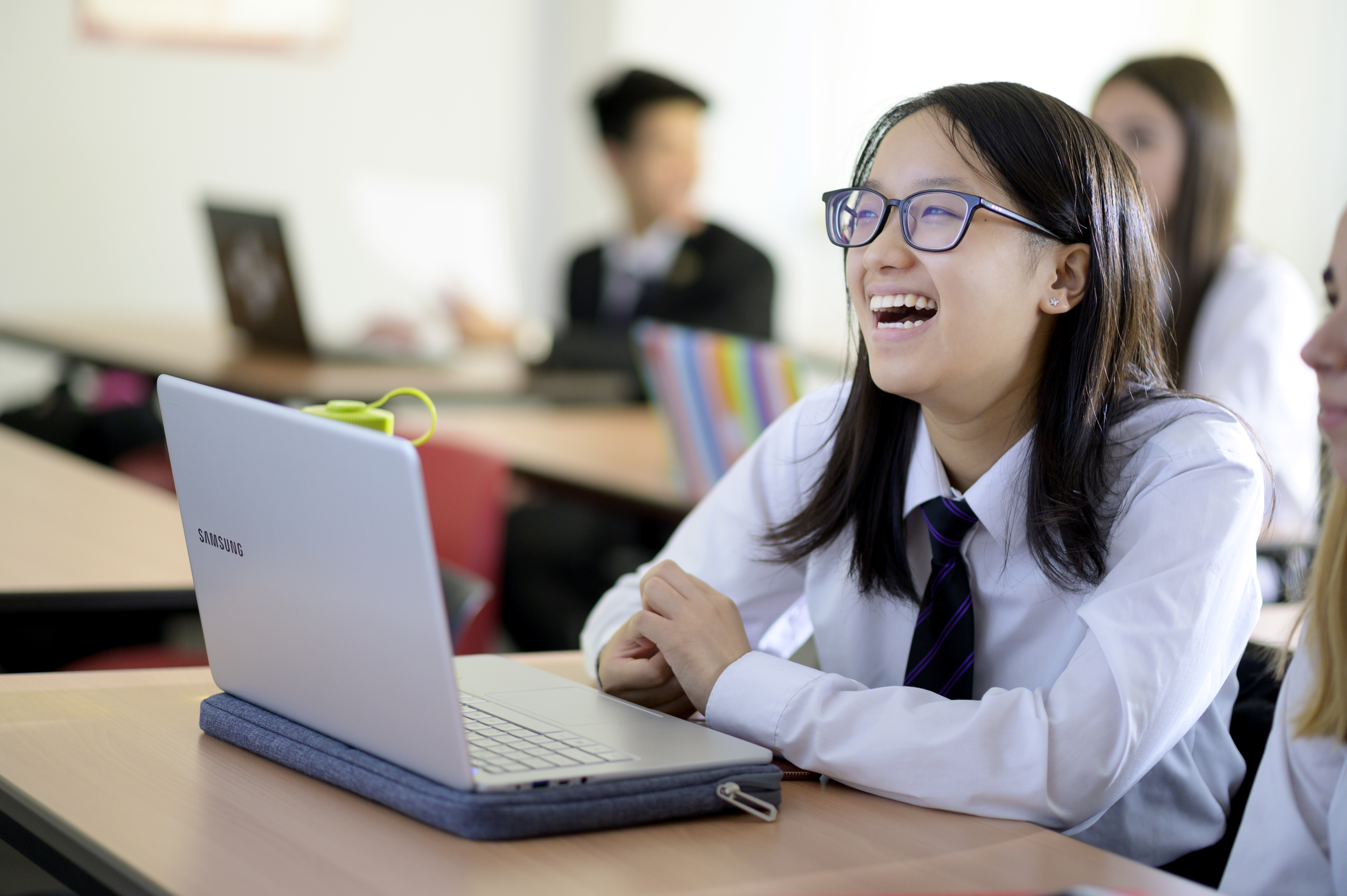 The Dukes Education colleges – Cardiff Sixth Form College, Rochester Independent College and Earlscliffe – have launched new online prospectuses this week showcasing their online learning.
The Dukes Education colleges – Cardiff Sixth Form College, Rochester Independent College and Earlscliffe – have launched new online prospectuses this week showcasing their online learning.
Within a week, schools across the UK have been providing online lessons, videos, coursework and assessment and many, such as these Colleges, are teaching in real-time lessons across the curriculum.
Cardiff Sixth Form College, the UK’s top school, has fully embraced these changes, aiming to ensure that all its students receive the same outstanding tuition and guidance that they are used to. Following a set timetable starting earlier in the day, lessons are available for students in other time zones to participate in, using Google Classroom and Google Hangouts technology. Past exam papers, mark schemes, PowerPoints and class notes are available electronically, homework is continuing to be set and tasks created via Google Drive or email. One-to-one sessions for support, help and advice are available at any time and work is marked and feedback submitted using Google Drive or email.
Following Government guidance on grading (published today, Friday 3 April, with a deadline for grades to be submitted by 29 May 2020) those taking GCSE at Cardiff will then turn their hands to A-level preparation. Year 13 A-level students will be supported with university preparation work such as online courses, individual research and online qualifications and Year 12 AS candidates will continue with their AS courses as their applications to university will now be based on predicted rather than AS grades. One-to-one careers meetings as well as help guides for UCAS guidance and support have been arranged by the Careers Department and a UCAS guidance week will be conducted via CSFC Online for all AS students. Online pastoral care support, well-being and even yoga and workout sessions are also available for the Cardiff Sixth Form College community, as well as an online debate club and daily assemblies.
Rochester Independent College’s RIC Without Walls has been equally as creative with regular lessons, live debates, Q&A sessions and an in-house intranet. Years 7-11 have form time, PSHE, live video streaming and independent project based learning experiences as well as sport lessons, Dungeons and Dragons Club, RIC Young Artists and Digital Leaders. Sixth Form students and those undertaking A-level retakes are continuing to be taught online and finishing syllabuses. University placement and clearing support is provided and a virtual UCAS programme with resources from universities and UCAS advisors has been designed for Year 12 students. Those studying the visual arts are receiving personalised support and tutorials to ensure they can confidently develop portfolios using Google and Adobe Suites. Live demonstrations, an online Gallery and virtual gallery trips guided by tutors are taking place at The Louvre, V&A, Metropolitan, Tate Modern and National Galleries. Rochester staff and students are also continuing to support their nominated charities with lower school students sending letters, artwork and poems to local residences for the older generation.
Earlscliffe in Kent offers both a Business Diploma and a University Foundation Year as well as A-levels and GCSEs. As the Business Diploma and the University Foundation Year do not include examinations, course assessment and certification for them carries on as usual. Online course teaching, weekly TRaC™ testing and results, marking and feedback, the EPQ and university counselling is now delivered completely online according to the normal timetable. In addition, online clubs including astronomy, art and design, UNESCO, fashion, debating, environmental club, classical music, drone and chess clubs are all offered virtually as well as online mental health and wellbeing strategies and exercise programmes.
James Harding, the Earlscliffe Head, commented: “Although for many the virtual learning world will be new, for many young people the use of technology in daily life is a familiar one. Advantages include flexibility, having greater autonomy, instant access to materials and the ability for the student to learn in a way that is uniquely suited to them. The freedom in a virtual classroom allows for more creativity and broader perspectives to be woven into lessons and from a teaching perspective, there is wider scope for assessment which frees up time for more meaningful interactions between learners and instructors.”